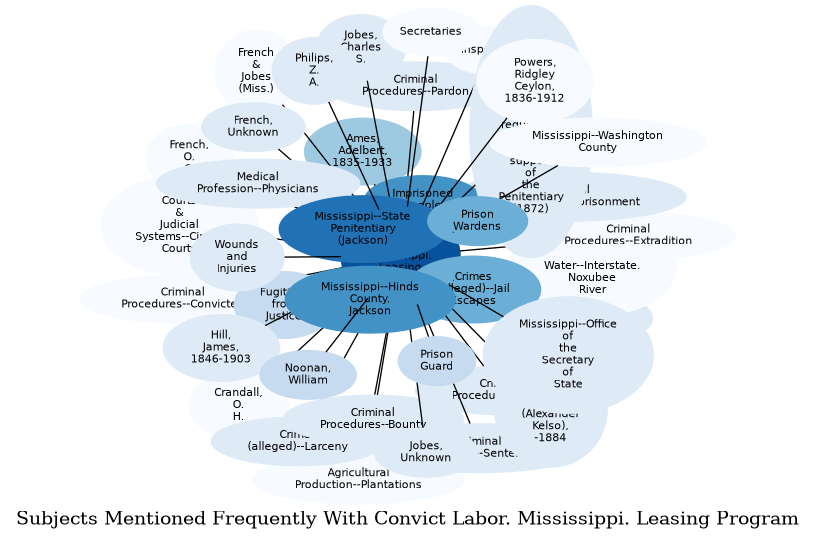Description
Like many slaveholding states of the former Confederacy, Mississippi operated a convict leasing system between the 1860s–1900s. Under convict leasing systems, states leased imprisoned people to perform unfree labor for companies and individuals in exchange for a fee. State and county laws (such as "Pig Laws" and vagrancy laws) and racially selective prosecutions funneled large, overrepresented populations of African Americans into their prison institutions. Therefore, Mississippi's convict leasing system replaced the state's former system of race-based chattel slavery and laborers encountered harsh conditions, violent punishments, and high death tolls. Public outcry over these conditions, especially following the Gulf & Ship Island Railroad Company's convict leasing practices, forced Mississippi to abolish its convict leasing program in 1890, becoming the first state to do so. County governments, however, continued to operate convict leasing arrangements using chain gangs until the 1900s. In 1904 Mississippi opened Parchman Prison on a cotton plantation in the Mississippi Delta and consolidated much of its convict labor there. (Mississippi Encyclopedia)
See also: https://mississippiencyclopedia.org/entries/convict-leasing-and-chain-gangs/
Related Subjects

The graph displays the other subjects mentioned on the same pages as the subject "Convict Labor. Mississippi. Leasing Program". If the same subject occurs on a page with "Convict Labor. Mississippi. Leasing Program" more than once, it appears closer to "Convict Labor. Mississippi. Leasing Program" on the graph, and is colored in a darker shade. The closer a subject is to the center, the more "related" the subjects are.